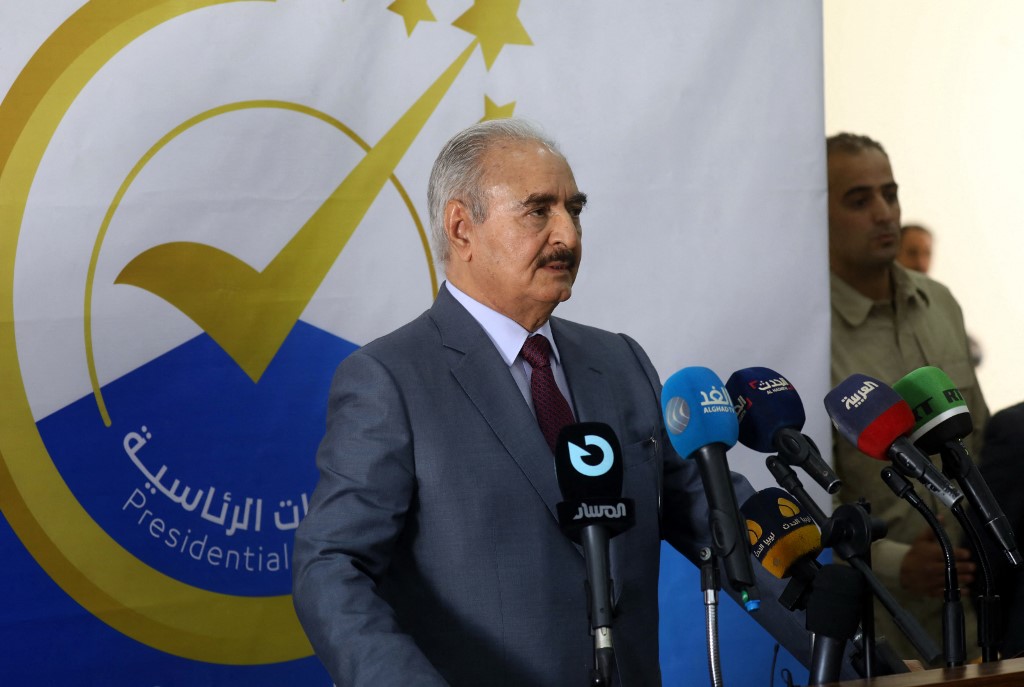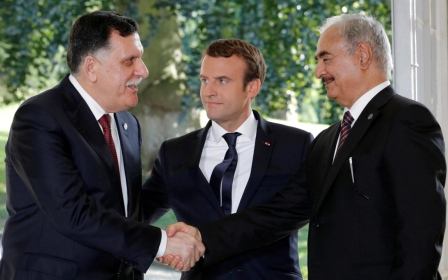How France is losing influence across North Africa

Russian President Vladimir Putin can look back at 2021 satisfied in the knowledge that Moscow has further strengthened its hand in the Middle East and northwestern Africa. French President Emmanuel Macron, for his part, can only conclude that Paris is losing influence across the latter region, mostly in countries that were former colonies.
France holds fewer cards than it did as recently as 2011, and it cannot wish away the growing influence of Turkey and Russia
Two factors have weakened France’s hand. The selective US disengagement from regional affairs has weakened Europe’s leverage over North Africa and the Sahel amid internal EU divisions, notably the sharply different policies pursued by France and Italy in Libya. Europe’s southern neighbours are also undergoing a slow process of strengthening their national sovereignty and diversifying their security and economic partners.
The unravelling of French policy in Libya and Mali, and its mishandling of relations with Algeria, a key military player in the region, illustrate a broader failure of the European imagination and a lack of strategic thinking about Africa.
Rethinking its strategic interests in a region where neocolonial stereotypes all too often seem to underpin French policies is especially necessary at a time when Turkey, China and Russia - which in the past had shown little interest in the region - have been actively pursuing economic, trade and security interests. In short, French diplomatic algorithms are obsolete.
Divisions over Libya
Stay informed with MEE's newsletters
Sign up to get the latest alerts, insights and analysis, starting with Turkey Unpacked
First things first: France’s leading role in the Nato-backed military intervention in Libya in 2011 divided Western Europe. Italy, a former colonial power, was not happy at the role France assumed as cheerleader of the removal of Muammar Gaddafi. France’s subsequent support for warlord Khalifa Haftar fuelled the Libyan conflict and encouraged the renegade general in his attempt to seize Tripoli. The French position also opened the door for the UAE and Russia to join the fray in support of Haftar.
This led directly to Turkey’s open intervention in the conflict, starting in January 2020, which played into Russian hands. France was quick to decry the Turkish intervention, while remaining silent on the role of its Arab allies. Macron’s policy infuriated Algeria, whose leaders oppose intervention in North African affairs by states outside the region. Overall, the failure of France’s plan to bring Haftar to power damaged European credibility and influence in the conflict - leaving Russia, Turkey and the UAE firmly in charge.
Macron’s fixation on Turkey has crept into other policy areas, such as when he recently compared Turkey’s Ottoman-era “colonisation” of Algeria to French colonial rule from 1830 to 1962. In fact, the Ottoman presence came at the request of Algeria’s local population during a time of Spanish encroachment. Macron’s rewriting of history infuriated both Algeria’s president and opposition figures; to unite Algeria’s warring political factions in this way was a French own goal, complicating bilateral security arrangements.
In sharp contrast, Algeria has maintained good relations with other Mediterranean EU states. Its national oil company, Sonatrach, recently signed a $1.4bn oil and gas exploration deal with Italy’s ENI, reinforcing longstanding economic and security links between the two countries. Spain’s relations with Algeria also remain on an even keel, despite the closure of the Maghreb-Europe gas pipeline late last year.
French contradictions
The contradictions of French policy in the region are unlikely to further its long-term interests. Algeria is puzzled by Macron’s indulgence of Russian mercenaries in Libya and, potentially, in Mali in the future. Russia, a key supplier of weapons to Algeria, strongly opposed the opposition Hirak movement in its heyday three years ago, a policy that might not be in France’s long-term interests. In addition, Macron’s indulgence of the UAE, with whom France recently concluded important weapons contracts, sits uncomfortably with Abu Dhabi’s delight in fanning the flames of the Algeria-Morocco dispute and its keenness to recognise Morocco’s “sovereignty” over the disputed Western Sahara.
Many West African leaders believe France’s interventionism has worsened the many conflicts that in the West are often presented as “jihadists versus everyone else” - an oversimplification that makes it difficult to understand the multilayered nature of the crises raging across the vast Sahel region. In Mali, it is clear that the conflict will not be solved by military means alone; it is far more complex.
While some Malians have urged talks with armed groups, whose aims on the ground tend to be more local and criminal than religious or ideological, Paris disagrees. This is why France’s western allies are reluctant to engage militarily. As France draws down its troops in Mali, Malian leaders might be tempted to turn to Russian mercenaries, which would not bring long-term stability.
More than ever, French algorithms need to adjust to the 21st century. Framing a coherent strategy in northwestern Africa is no easy matter in an age when long-standing alliances and post-colonial spheres of interest have given way to transactional diplomacy. France holds fewer cards than it did as recently as 2011, and it cannot wish away the growing influence of Turkey and Russia.
Never has the need for a serious strategic debate between France, the EU and Algeria been greater. Macron has presided over a decline of French influence in Libya. What is needed is a serious rethink of French strategy towards a region to which it is bound by common history, culture, economics and security. This must occur in concert with other European powers, such as Italy, Spain and Germany, if it is to stand a chance of success.
The views expressed in this article belong to the author and do not necessarily reflect the editorial policy of Middle East Eye.
Middle East Eye delivers independent and unrivalled coverage and analysis of the Middle East, North Africa and beyond. To learn more about republishing this content and the associated fees, please fill out this form. More about MEE can be found here.







